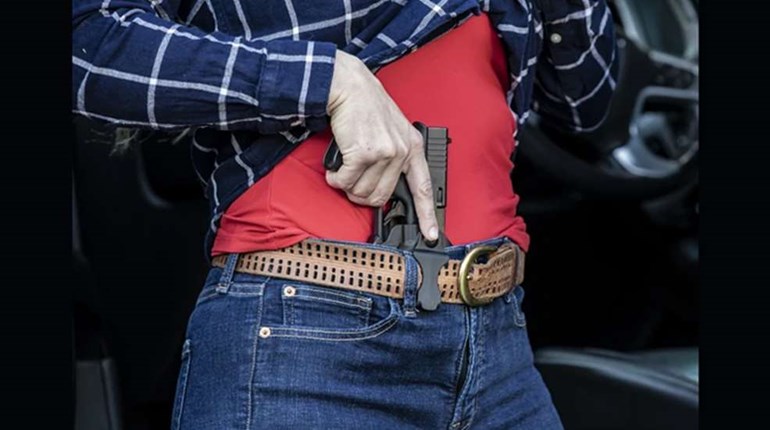
Carol Bowne was under no illusions; she knew that she was in danger. Her ex-boyfriend, Michael Eitel, had a history of violence and an overt desire to cause her harm. The New Jersey hairdresser added a home security system complete with cameras, and she filed a protective order to keep Eitel away from her. But she knew that all of these precautions were liable to fail her in the end, so she began the procedures required in the state to purchase a handgun.
This was in April. Carol Bowne was fatally stabbed in her driveway on June 10. At the time of her death, Bowne was unarmed—her firearm permit application still under consideration by the state of New Jersey.
No matter how often various bureaucratic hurdles to gun ownership raised in the name of “common-sense laws” are demonstrated to be ineffective, it is widely assumed by many that at least they do no harm. But Bowne’s situation could hardly be clearer. She very well might be alive had she been able to purchase a gun at the time when she knew she needed it.
Jane Shivas, executive director for the New Jersey Coalition for Battered Women (and notably affiliated with Everytown for Gun Safety) was quoted soon afterwards as saying, “We will never know whether Carol would be alive today if she had received her gun permit and purchased a gun.” It is true that we will never have the chance to know with certainty what would have transpired. But we know that her attacker, with a knife, outmatched Bowne and took her life.
“My friend didn’t have to die that way,” one of Bowne’s co-workers said recently. “He killed her like an animal, and I will never rest knowing that that’s the way my friend’s life was ended because she couldn’t protect herself. And knowing that it could have been prevented makes it all that much more painful … and hard to digest.”
Carol Bowne’s friends and family are not motivated by a political agenda when they point out the needlessness of her death. They see that she took reasonable precautions and applied for her firearm permit well in advance—and was failed by a restrictive permitting system and a state that failed to process her application despite the numerous police reports she filed against Eitel. They want Carol Bowne back, and they can’t understand why it had to end this way.
For a more detailed look at this story, watch Ginny Simone’s new investigative report on Carol Bowne on the NRA News website.


































